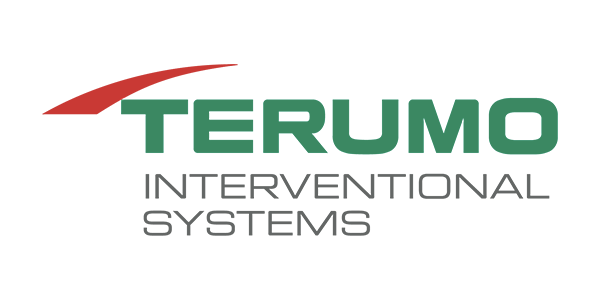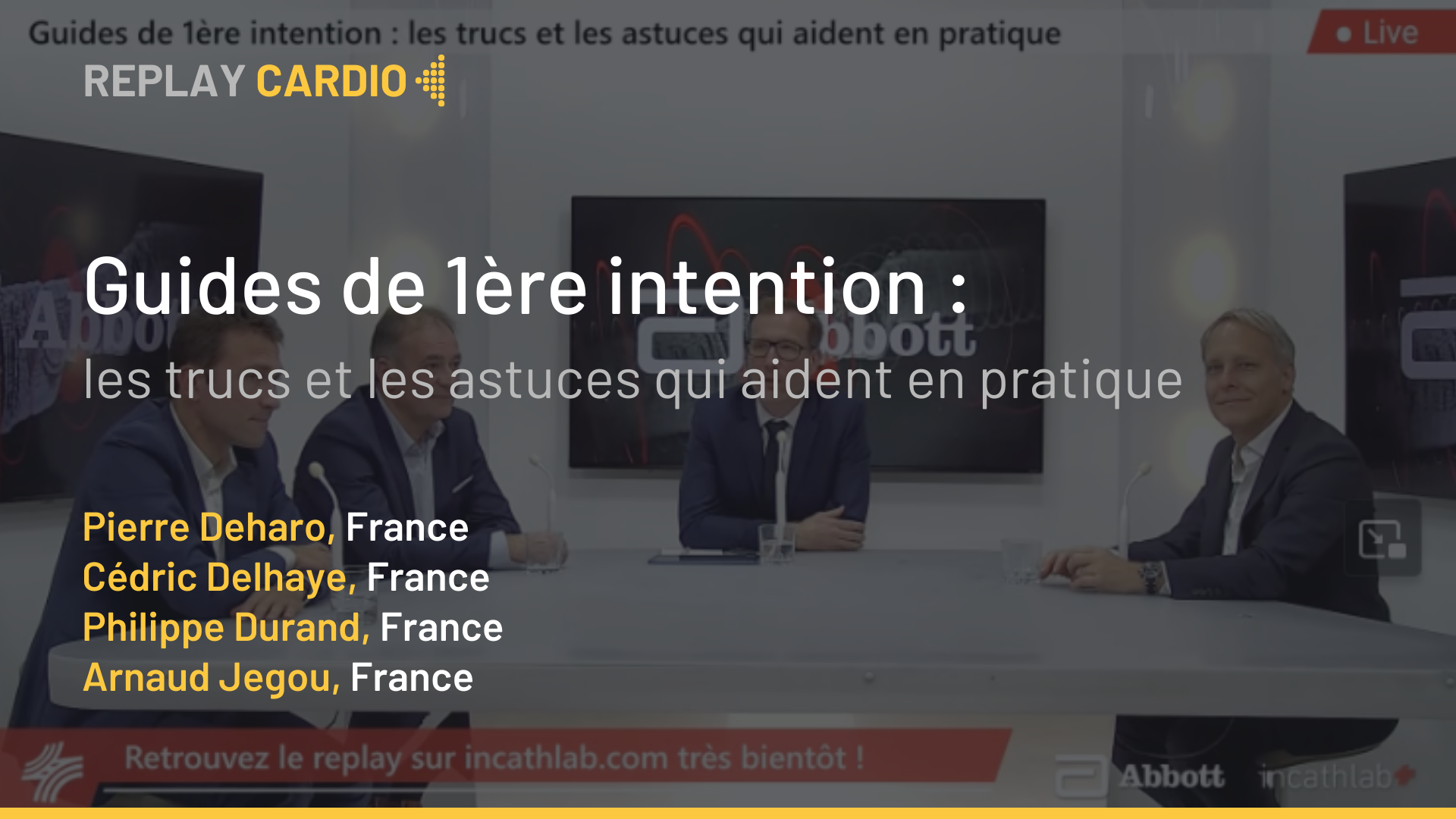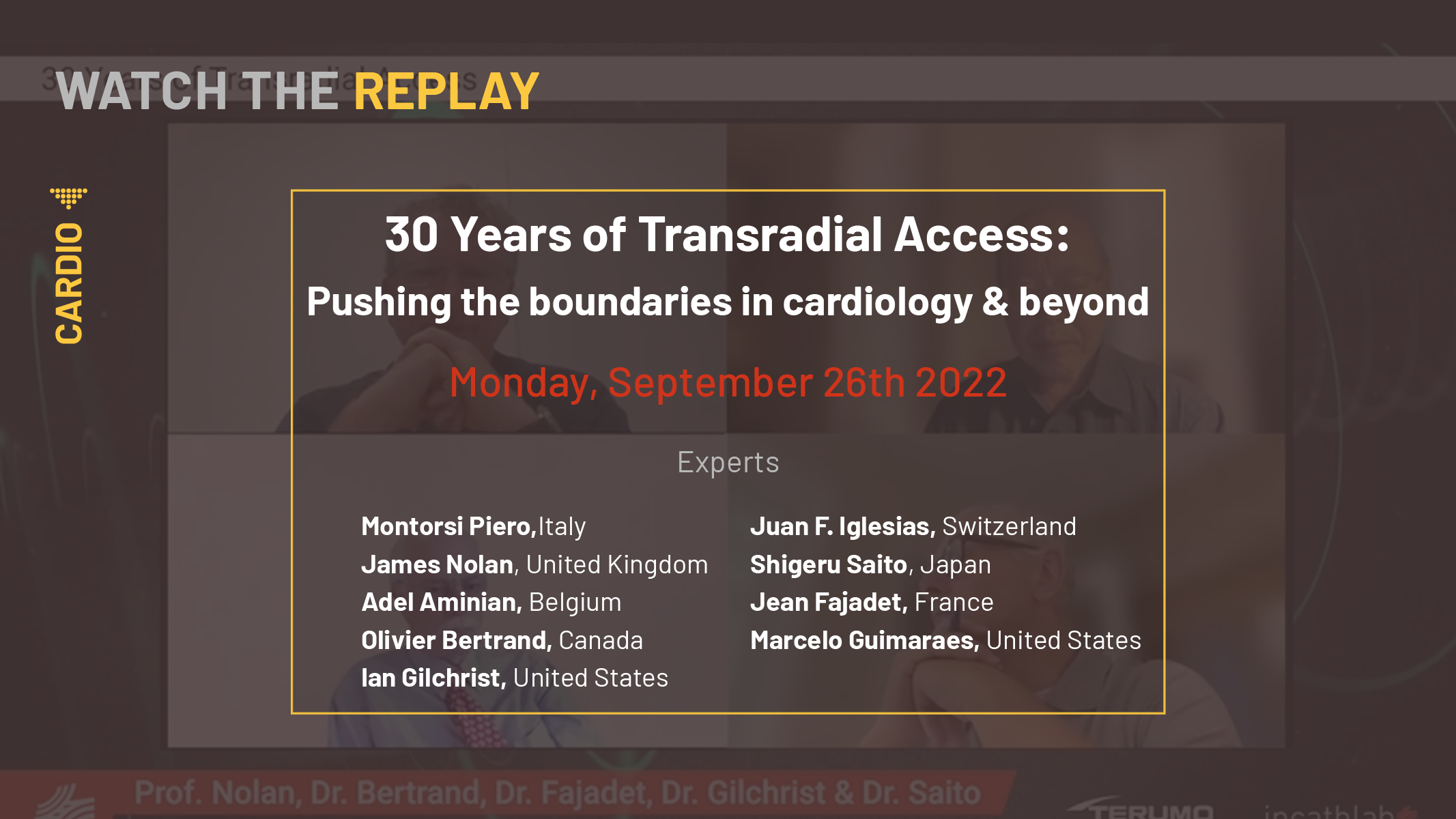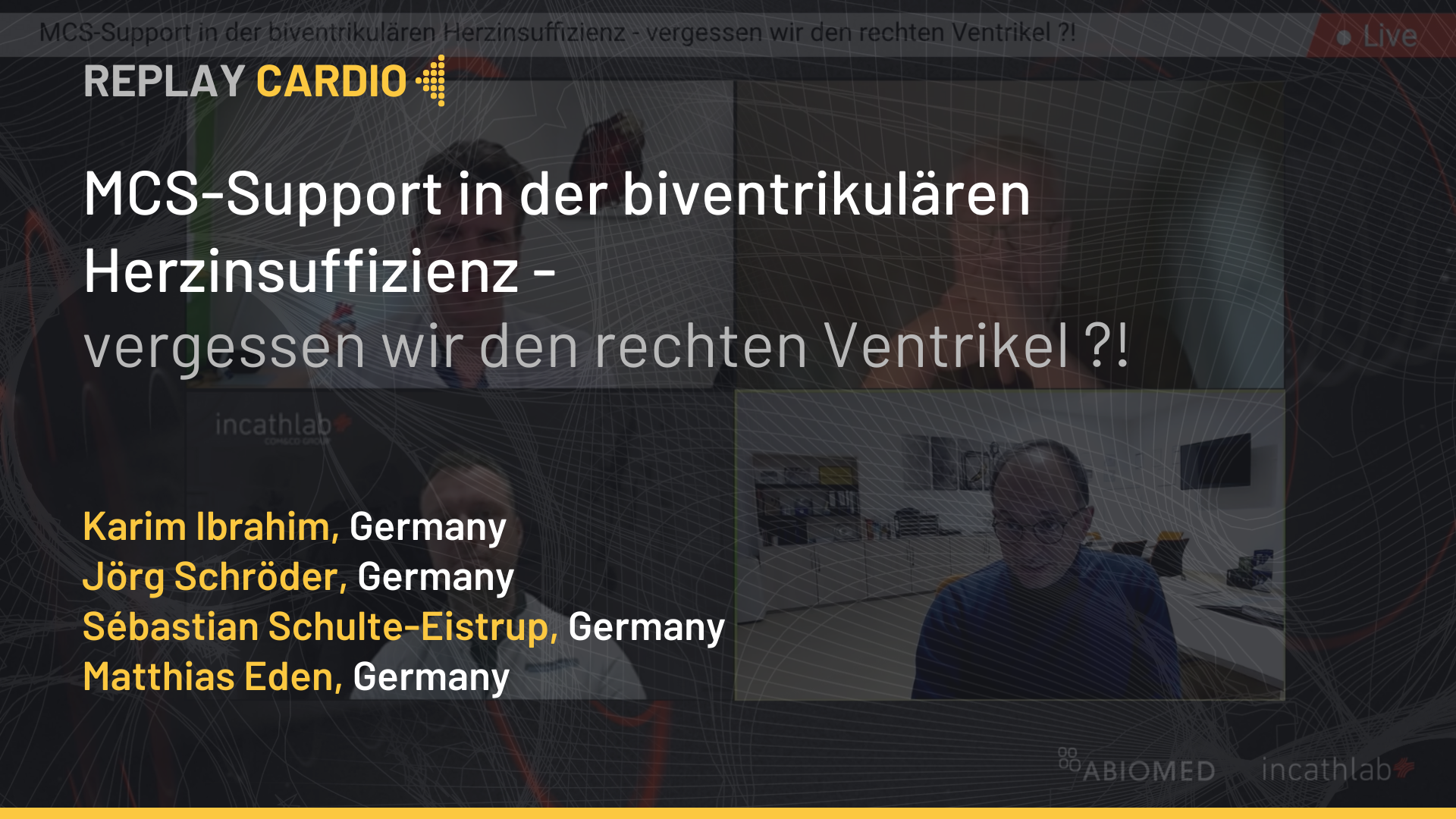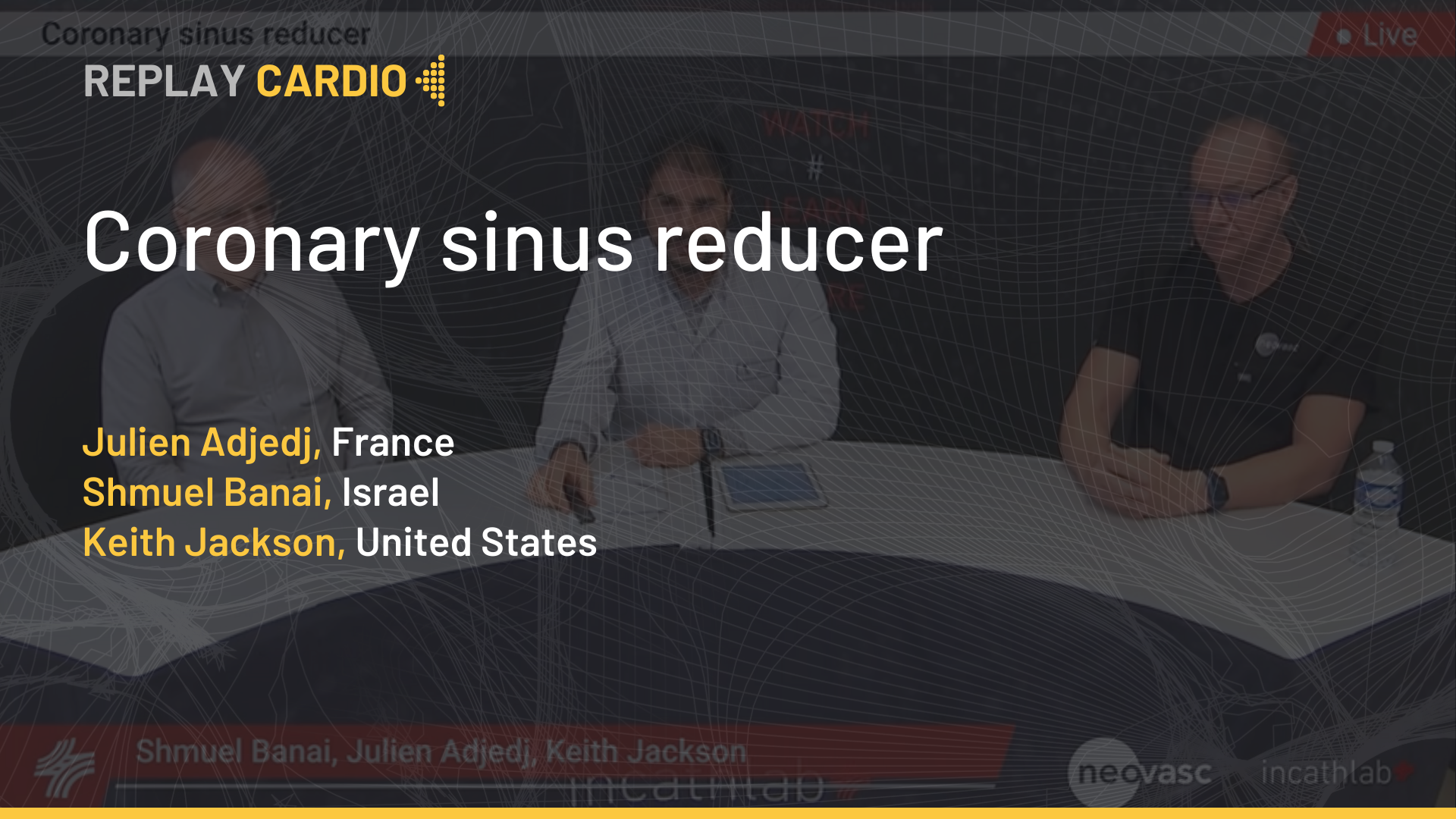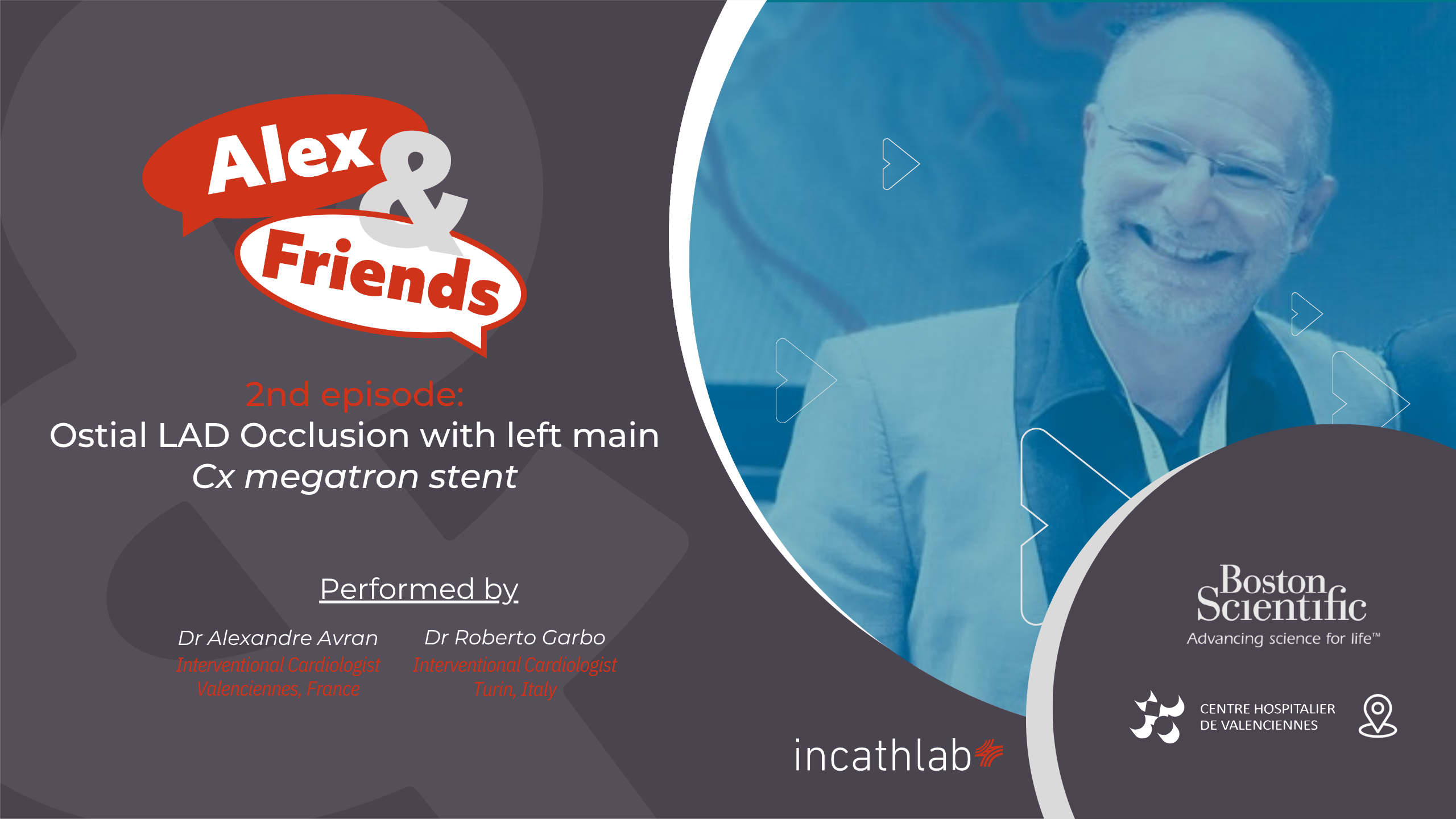×
Il semble que vous utilisiez une version obsolète de internet explorer. Internet explorer n'est plus supporté par Microsoft depuis fin 2015. Nous vous invitons à utiliser un navigateur plus récent tel que Firefox, Google Chrome ou Microsoft Edge.

Devenez membre d'Incathlab et bénéficiez d'un accès complet !
Vous devez être membre pour accéder aux vidéos Incathlab sans limitation. Inscrivez vous gratuitement en moins d'une minute et accédez à tous les services Incathlab ! Vous avez aussi la possibilité de vous connecter directement avec votre compte facebook ou twitter en cliquant sur login en haut à droite du site.
Inscription Connexion
Inscription Connexion
This program has been built in 2 episodes:
Part 1: The unknown HBR patient
Part 2: When DAPT meets OAC - what to do?
Agenda:
|
Introduction |
|
|
Expert discussion on treatment option of HBR patients with an OAC indication |
|
|
Different Clinical scenarios |
|
| Conclusion & take home message |
Objectives:
Extending the MASTER DAPT* discussion to OAC patients:
- Understand pre & peri-procedural considerations for an OAC patient attending the cathlab
- Discuss optimal dosing & duration of triple therapy
- Consider long term role of antiplatelet therapy in OAC patient post-PCI
* MASTER DAPT included patients at high bleeding risk who had undergoneimplantation of Ultimaster™ family stent; results may not extend to patients who arenot at high bleeding risk or who receive other stent types. MASTER DAPT study issponsored by the European Cardiovascular Research Institute (ECRI, Rotterdam, TheNetherlands) and supported with a restricted research grant by Terumo Europe.Ultimaster™ Tansei™ and Ultimaster™ DES are not available for sales in all countries.Please contact your Terumo local sales representatives for more information.
Date du tournage : 30/03/2022
Dernière mise à jour : 11/04/2022
Dernière mise à jour : 11/04/2022
Suggestions
Mardi 23 avril 2024 de 17h à 18h15 (GMT+2)
Honolulu : Mardi 23 avril 2024 de 05h à 06h15 (GMT+2)
San Francisco : Mardi 23 avril 2024 de 08h à 09h15 (GMT+2)
New York : Mardi 23 avril 2024 de 11h à 12h15 (GMT+2)
Buenos Aires : Mardi 23 avril 2024 de 12h à 13h15 (GMT+2)
Reykjavik : Mardi 23 avril 2024 de 15h à 16h15 (GMT+2)
London / Dublin : Mardi 23 avril 2024 de 16h à 17h15 (GMT+2)
Paris / Berlin : Mardi 23 avril 2024 de 17h à 18h15 (GMT+2)
Istanbul : Mardi 23 avril 2024 de 18h à 19h15 (GMT+2)
Moscou / Dubaï : Mardi 23 avril 2024 de 19h à 20h15 (GMT+2)
Bangkok : Mardi 23 avril 2024 de 22h à 23h15 (GMT+2)
Shanghai : Mardi 23 avril 2024 de 23h à 00h15 (GMT+2)
Tokyo : Mercredi 24 avril 2024 de 00h à 01h15 (GMT+2)
Sydney : Mercredi 24 avril 2024 de 02h à 03h15 (GMT+2)
Wellington : Mercredi 24 avril 2024 de 04h à 05h15 (GMT+2)
San Francisco : Mardi 23 avril 2024 de 08h à 09h15 (GMT+2)
New York : Mardi 23 avril 2024 de 11h à 12h15 (GMT+2)
Buenos Aires : Mardi 23 avril 2024 de 12h à 13h15 (GMT+2)
Reykjavik : Mardi 23 avril 2024 de 15h à 16h15 (GMT+2)
London / Dublin : Mardi 23 avril 2024 de 16h à 17h15 (GMT+2)
Paris / Berlin : Mardi 23 avril 2024 de 17h à 18h15 (GMT+2)
Istanbul : Mardi 23 avril 2024 de 18h à 19h15 (GMT+2)
Moscou / Dubaï : Mardi 23 avril 2024 de 19h à 20h15 (GMT+2)
Bangkok : Mardi 23 avril 2024 de 22h à 23h15 (GMT+2)
Shanghai : Mardi 23 avril 2024 de 23h à 00h15 (GMT+2)
Tokyo : Mercredi 24 avril 2024 de 00h à 01h15 (GMT+2)
Sydney : Mercredi 24 avril 2024 de 02h à 03h15 (GMT+2)
Wellington : Mercredi 24 avril 2024 de 04h à 05h15 (GMT+2)
From Access to Closure through Treatment:
How to Maximize Outcomes while Minimizing Impact
Partager
Mercredi 16 octobre 2024 de 18h à 18h45 (GMT+2)
Honolulu : Mercredi 16 octobre 2024 de 06h à 06h45 (GMT+2)
San Francisco : Mercredi 16 octobre 2024 de 09h à 09h45 (GMT+2)
New York : Mercredi 16 octobre 2024 de 12h à 12h45 (GMT+2)
Buenos Aires : Mercredi 16 octobre 2024 de 13h à 13h45 (GMT+2)
Reykjavik : Mercredi 16 octobre 2024 de 16h à 16h45 (GMT+2)
London / Dublin : Mercredi 16 octobre 2024 de 17h à 17h45 (GMT+2)
Paris / Berlin : Mercredi 16 octobre 2024 de 18h à 18h45 (GMT+2)
Istanbul : Mercredi 16 octobre 2024 de 19h à 19h45 (GMT+2)
Moscou / Dubaï : Mercredi 16 octobre 2024 de 20h à 20h45 (GMT+2)
Bangkok : Mercredi 16 octobre 2024 de 23h à 23h45 (GMT+2)
Shanghai : Jeudi 17 octobre 2024 de 00h à 00h45 (GMT+2)
Tokyo : Jeudi 17 octobre 2024 de 01h à 01h45 (GMT+2)
Sydney : Jeudi 17 octobre 2024 de 03h à 03h45 (GMT+2)
Wellington : Jeudi 17 octobre 2024 de 05h à 05h45 (GMT+2)
San Francisco : Mercredi 16 octobre 2024 de 09h à 09h45 (GMT+2)
New York : Mercredi 16 octobre 2024 de 12h à 12h45 (GMT+2)
Buenos Aires : Mercredi 16 octobre 2024 de 13h à 13h45 (GMT+2)
Reykjavik : Mercredi 16 octobre 2024 de 16h à 16h45 (GMT+2)
London / Dublin : Mercredi 16 octobre 2024 de 17h à 17h45 (GMT+2)
Paris / Berlin : Mercredi 16 octobre 2024 de 18h à 18h45 (GMT+2)
Istanbul : Mercredi 16 octobre 2024 de 19h à 19h45 (GMT+2)
Moscou / Dubaï : Mercredi 16 octobre 2024 de 20h à 20h45 (GMT+2)
Bangkok : Mercredi 16 octobre 2024 de 23h à 23h45 (GMT+2)
Shanghai : Jeudi 17 octobre 2024 de 00h à 00h45 (GMT+2)
Tokyo : Jeudi 17 octobre 2024 de 01h à 01h45 (GMT+2)
Sydney : Jeudi 17 octobre 2024 de 03h à 03h45 (GMT+2)
Wellington : Jeudi 17 octobre 2024 de 05h à 05h45 (GMT+2)
Guides de 1ère intention :
les trucs et les astuces qui aident en pratique
Partager
Mercredi 18 septembre 2024 de 12h à 13h (GMT+2)
Honolulu : Mercredi 18 septembre 2024 de 00h à 01h (GMT+2)
San Francisco : Mercredi 18 septembre 2024 de 03h à 04h (GMT+2)
New York : Mercredi 18 septembre 2024 de 06h à 07h (GMT+2)
Buenos Aires : Mercredi 18 septembre 2024 de 07h à 08h (GMT+2)
Reykjavik : Mercredi 18 septembre 2024 de 10h à 11h (GMT+2)
London / Dublin : Mercredi 18 septembre 2024 de 11h à 12h (GMT+2)
Paris / Berlin : Mercredi 18 septembre 2024 de 12h à 13h (GMT+2)
Istanbul : Mercredi 18 septembre 2024 de 13h à 14h (GMT+2)
Moscou / Dubaï : Mercredi 18 septembre 2024 de 14h à 15h (GMT+2)
Bangkok : Mercredi 18 septembre 2024 de 17h à 18h (GMT+2)
Shanghai : Mercredi 18 septembre 2024 de 18h à 19h (GMT+2)
Tokyo : Mercredi 18 septembre 2024 de 19h à 20h (GMT+2)
Sydney : Mercredi 18 septembre 2024 de 21h à 22h (GMT+2)
Wellington : Mercredi 18 septembre 2024 de 23h à 00h (GMT+2)
San Francisco : Mercredi 18 septembre 2024 de 03h à 04h (GMT+2)
New York : Mercredi 18 septembre 2024 de 06h à 07h (GMT+2)
Buenos Aires : Mercredi 18 septembre 2024 de 07h à 08h (GMT+2)
Reykjavik : Mercredi 18 septembre 2024 de 10h à 11h (GMT+2)
London / Dublin : Mercredi 18 septembre 2024 de 11h à 12h (GMT+2)
Paris / Berlin : Mercredi 18 septembre 2024 de 12h à 13h (GMT+2)
Istanbul : Mercredi 18 septembre 2024 de 13h à 14h (GMT+2)
Moscou / Dubaï : Mercredi 18 septembre 2024 de 14h à 15h (GMT+2)
Bangkok : Mercredi 18 septembre 2024 de 17h à 18h (GMT+2)
Shanghai : Mercredi 18 septembre 2024 de 18h à 19h (GMT+2)
Tokyo : Mercredi 18 septembre 2024 de 19h à 20h (GMT+2)
Sydney : Mercredi 18 septembre 2024 de 21h à 22h (GMT+2)
Wellington : Mercredi 18 septembre 2024 de 23h à 00h (GMT+2)
Can PCI outcomes get any better?
Advancing the standard of care with bioadaptor
Partager
Lundi 26 septembre 2022 de 17h à 19h (GMT+2)
Honolulu : Lundi 26 septembre 2022 de 05h à 07h (GMT+2)
San Francisco : Lundi 26 septembre 2022 de 08h à 10h (GMT+2)
New York : Lundi 26 septembre 2022 de 11h à 13h (GMT+2)
Buenos Aires : Lundi 26 septembre 2022 de 12h à 14h (GMT+2)
Reykjavik : Lundi 26 septembre 2022 de 15h à 17h (GMT+2)
London / Dublin : Lundi 26 septembre 2022 de 16h à 18h (GMT+2)
Paris / Berlin : Lundi 26 septembre 2022 de 17h à 19h (GMT+2)
Istanbul : Lundi 26 septembre 2022 de 18h à 20h (GMT+2)
Moscou / Dubaï : Lundi 26 septembre 2022 de 19h à 21h (GMT+2)
Bangkok : Lundi 26 septembre 2022 de 22h à 00h (GMT+2)
Shanghai : Lundi 26 septembre 2022 de 23h à 01h (GMT+2)
Tokyo : Mardi 27 septembre 2022 de 00h à 02h (GMT+2)
Sydney : Mardi 27 septembre 2022 de 02h à 04h (GMT+2)
Wellington : Mardi 27 septembre 2022 de 04h à 06h (GMT+2)
San Francisco : Lundi 26 septembre 2022 de 08h à 10h (GMT+2)
New York : Lundi 26 septembre 2022 de 11h à 13h (GMT+2)
Buenos Aires : Lundi 26 septembre 2022 de 12h à 14h (GMT+2)
Reykjavik : Lundi 26 septembre 2022 de 15h à 17h (GMT+2)
London / Dublin : Lundi 26 septembre 2022 de 16h à 18h (GMT+2)
Paris / Berlin : Lundi 26 septembre 2022 de 17h à 19h (GMT+2)
Istanbul : Lundi 26 septembre 2022 de 18h à 20h (GMT+2)
Moscou / Dubaï : Lundi 26 septembre 2022 de 19h à 21h (GMT+2)
Bangkok : Lundi 26 septembre 2022 de 22h à 00h (GMT+2)
Shanghai : Lundi 26 septembre 2022 de 23h à 01h (GMT+2)
Tokyo : Mardi 27 septembre 2022 de 00h à 02h (GMT+2)
Sydney : Mardi 27 septembre 2022 de 02h à 04h (GMT+2)
Wellington : Mardi 27 septembre 2022 de 04h à 06h (GMT+2)
30 Years of Transradial Access:
Pushing the boundaries in cardiology & beyond
Partager
Jeudi 9 octobre 2025 de 12h à 13h (GMT+2)
Honolulu : Jeudi 9 octobre 2025 de 00h à 01h (GMT+2)
San Francisco : Jeudi 9 octobre 2025 de 03h à 04h (GMT+2)
New York : Jeudi 9 octobre 2025 de 06h à 07h (GMT+2)
Buenos Aires : Jeudi 9 octobre 2025 de 07h à 08h (GMT+2)
Reykjavik : Jeudi 9 octobre 2025 de 10h à 11h (GMT+2)
London / Dublin : Jeudi 9 octobre 2025 de 11h à 12h (GMT+2)
Paris / Berlin : Jeudi 9 octobre 2025 de 12h à 13h (GMT+2)
Istanbul : Jeudi 9 octobre 2025 de 13h à 14h (GMT+2)
Moscou / Dubaï : Jeudi 9 octobre 2025 de 14h à 15h (GMT+2)
Bangkok : Jeudi 9 octobre 2025 de 17h à 18h (GMT+2)
Shanghai : Jeudi 9 octobre 2025 de 18h à 19h (GMT+2)
Tokyo : Jeudi 9 octobre 2025 de 19h à 20h (GMT+2)
Sydney : Jeudi 9 octobre 2025 de 21h à 22h (GMT+2)
Wellington : Jeudi 9 octobre 2025 de 23h à 00h (GMT+2)
San Francisco : Jeudi 9 octobre 2025 de 03h à 04h (GMT+2)
New York : Jeudi 9 octobre 2025 de 06h à 07h (GMT+2)
Buenos Aires : Jeudi 9 octobre 2025 de 07h à 08h (GMT+2)
Reykjavik : Jeudi 9 octobre 2025 de 10h à 11h (GMT+2)
London / Dublin : Jeudi 9 octobre 2025 de 11h à 12h (GMT+2)
Paris / Berlin : Jeudi 9 octobre 2025 de 12h à 13h (GMT+2)
Istanbul : Jeudi 9 octobre 2025 de 13h à 14h (GMT+2)
Moscou / Dubaï : Jeudi 9 octobre 2025 de 14h à 15h (GMT+2)
Bangkok : Jeudi 9 octobre 2025 de 17h à 18h (GMT+2)
Shanghai : Jeudi 9 octobre 2025 de 18h à 19h (GMT+2)
Tokyo : Jeudi 9 octobre 2025 de 19h à 20h (GMT+2)
Sydney : Jeudi 9 octobre 2025 de 21h à 22h (GMT+2)
Wellington : Jeudi 9 octobre 2025 de 23h à 00h (GMT+2)
RMS Freesolve:
Continuing the Journey and Discovering the Potential of Scaffolds
Partager
Mardi 28 février 2023 de 18h à 19h30 (GMT+1)
Honolulu : Mardi 28 février 2023 de 06h à 07h30 (GMT+1)
San Francisco : Mardi 28 février 2023 de 08h à 09h30 (GMT+1)
New York : Mardi 28 février 2023 de 11h à 12h30 (GMT+1)
Buenos Aires : Mardi 28 février 2023 de 13h à 14h30 (GMT+1)
London / Dublin : Mardi 28 février 2023 de 16h à 17h30 (GMT+1)
Paris / Berlin : Mardi 28 février 2023 de 17h à 18h30 (GMT+1)
Istanbul : Mardi 28 février 2023 de 18h à 19h30 (GMT+1)
Moscou / Dubaï : Mardi 28 février 2023 de 20h à 21h30 (GMT+1)
Bangkok : Mardi 28 février 2023 de 23h à 00h30 (GMT+1)
Shanghai : Mercredi 1 er mars 2023 de 00h à 01h30 (GMT+1)
Tokyo : Mercredi 1 er mars 2023 de 01h à 02h30 (GMT+1)
Sydney : Mercredi 1 er mars 2023 de 02h à 03h30 (GMT+1)
Wellington : Mercredi 1 er mars 2023 de 04h à 05h30 (GMT+1)
San Francisco : Mardi 28 février 2023 de 08h à 09h30 (GMT+1)
New York : Mardi 28 février 2023 de 11h à 12h30 (GMT+1)
Buenos Aires : Mardi 28 février 2023 de 13h à 14h30 (GMT+1)
London / Dublin : Mardi 28 février 2023 de 16h à 17h30 (GMT+1)
Paris / Berlin : Mardi 28 février 2023 de 17h à 18h30 (GMT+1)
Istanbul : Mardi 28 février 2023 de 18h à 19h30 (GMT+1)
Moscou / Dubaï : Mardi 28 février 2023 de 20h à 21h30 (GMT+1)
Bangkok : Mardi 28 février 2023 de 23h à 00h30 (GMT+1)
Shanghai : Mercredi 1 er mars 2023 de 00h à 01h30 (GMT+1)
Tokyo : Mercredi 1 er mars 2023 de 01h à 02h30 (GMT+1)
Sydney : Mercredi 1 er mars 2023 de 02h à 03h30 (GMT+1)
Wellington : Mercredi 1 er mars 2023 de 04h à 05h30 (GMT+1)
MCS-Support in der biventrikulären Herzinsuffizienz -
vergessen wir den rechten Ventrikel ?!
Partager
Vendredi 17 février 2023 de 12h30 à 14h (GMT+1)
Honolulu : Vendredi 17 février 2023 de 00h30 à 02h (GMT+1)
San Francisco : Vendredi 17 février 2023 de 02h30 à 04h (GMT+1)
New York : Vendredi 17 février 2023 de 05h30 à 07h (GMT+1)
Buenos Aires : Vendredi 17 février 2023 de 07h30 à 09h (GMT+1)
London / Dublin : Vendredi 17 février 2023 de 10h30 à 12h (GMT+1)
Paris / Berlin : Vendredi 17 février 2023 de 11h30 à 13h (GMT+1)
Istanbul : Vendredi 17 février 2023 de 12h30 à 14h (GMT+1)
Moscou / Dubaï : Vendredi 17 février 2023 de 14h30 à 16h (GMT+1)
Bangkok : Vendredi 17 février 2023 de 17h30 à 19h (GMT+1)
Shanghai : Vendredi 17 février 2023 de 18h30 à 20h (GMT+1)
Tokyo : Vendredi 17 février 2023 de 19h30 à 21h (GMT+1)
Sydney : Vendredi 17 février 2023 de 20h30 à 22h (GMT+1)
Wellington : Vendredi 17 février 2023 de 22h30 à 00h (GMT+1)
San Francisco : Vendredi 17 février 2023 de 02h30 à 04h (GMT+1)
New York : Vendredi 17 février 2023 de 05h30 à 07h (GMT+1)
Buenos Aires : Vendredi 17 février 2023 de 07h30 à 09h (GMT+1)
London / Dublin : Vendredi 17 février 2023 de 10h30 à 12h (GMT+1)
Paris / Berlin : Vendredi 17 février 2023 de 11h30 à 13h (GMT+1)
Istanbul : Vendredi 17 février 2023 de 12h30 à 14h (GMT+1)
Moscou / Dubaï : Vendredi 17 février 2023 de 14h30 à 16h (GMT+1)
Bangkok : Vendredi 17 février 2023 de 17h30 à 19h (GMT+1)
Shanghai : Vendredi 17 février 2023 de 18h30 à 20h (GMT+1)
Tokyo : Vendredi 17 février 2023 de 19h30 à 21h (GMT+1)
Sydney : Vendredi 17 février 2023 de 20h30 à 22h (GMT+1)
Wellington : Vendredi 17 février 2023 de 22h30 à 00h (GMT+1)
Coronary sinus reducer
Partager
With Roberto Garbo
Ostial LAD Occlusion with left main/Cx megatron stent
Alex & Friends - Ep.2
Partager

